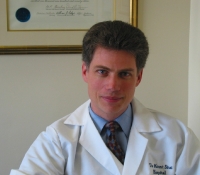Message from the Director

The field of palliative care has experienced substantial growth and development over the past 10 years. Strong clinical palliative care programs are now firmly established in multiple settings and venues. We have seen exponential growth in the number of hospice programs and the number of patients and families cared for by hospice. For instance, one in four hospitals in the United States has a palliative care program, including 100% of hospitals in the Veterans Health Administration. Palliative care is becoming an integral part of long-term care facilities.
Education in palliative care has also seen strong advances with increasing penetration of palliative care content in medical school and residency curricula, the success of national educational program in continuing education for nurses and physicians, and the development of post-graduate palliative care fellowship programs. The recent approval of palliative medicine as an official medical sub-specialty by the American Board of Medical Specialties firmly establishes palliative care as an integral and essential part of American healthcare.
At the National Palliative Care Research Center, we are committed to developing the knowledge and skills that will further promote and advance the field of palliative care and thus improve care for persons living with serious illness. The vision and support of our philanthropic partners and the
Icahn School of Medicine at Mount Sinai has allowed us to develop a truly unique national research center whose mission is to foster ground-breaking research, support the development of a new generation of investigators, provide an administrative home for researchers, and address the major issues facing both patients with serious illness and their families. Finally, we will aim to take our research findings and rapidly translate them into effective clinical practice.
Please explore our website and feel free to
Contact Us if you would like to learn more about the NPCRC or how to further promote the growth of palliative care.
Sincerely,
R. Sean Morrison, MD